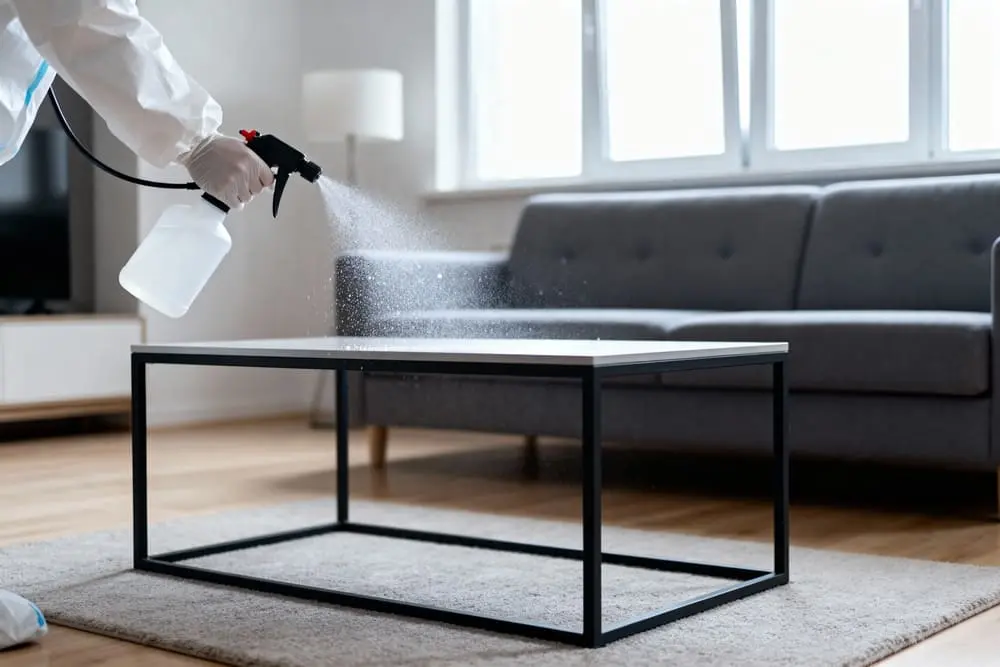Crystal glasses are an essential component if you want to enjoy a good wine at its best. Having suitable, quality glasses is the first step. But it’s also very important to care for them properly, as they are very delicate and could deteriorate without proper maintenance. If you’ve ever wondered how to clean crystal glasses without causing scratches or cloudiness, this guide will help you keep them sparkling and elegant for years.
It’s essential to know how to properly clean our glasses, considering, on the one hand, that their glass is very fragile and can break easily, and on the other, that improper cleaning can leave dirt or detergent residue on them, which can then affect the flavor of our next wine. That’s why we’ll explain the best way to clean crystal glasses and even how to make cloudy glasses crystal clear again so they look brand-new every time.
What Are Crystal Glasses and Why Do They Need Special Care?
Crystal glassware is more porous and brittle than normal glass, necessitating gentler handling and cleaning procedures. Dishwashers and aggressive detergents should be avoided when washing crystal glasses because they can cause cloudiness, scratches, and even fracture.
The Difference Between Crystal and Regular Glass
Knowing the difference between crystal and regular glass is essential when learning how to clean crystal glasses. The main difference between crystal and glass lies in their molecular composition and, therefore, their physical properties. Crystal has an ordered and repeating molecular structure, while glass has a disordered molecular structure.
This difference is evident in brightness, sound, weight, and shatter resistance. Crystal is generally shinier, produces a more resonant sound when struck, and is heavier and more durable, while glass is lighter and less shatter-resistant.
Leaded vs. Lead-Free Crystal: Cleaning Considerations
Leaded and lead-free crystals both require regular cleaning to maintain their look and avoid damage, but leaded crystal poses additional safety risks due to the possibility of lead leaching. If you’re wondering how do you clean crystal glasses safely, leaded crystal should always be hand-washed with a moderate detergent and warm water, rather than using a dishwasher. Lead-free crystal may often be cleaned in the same manner, but some may be dishwasher safe on a soft cycle.
Why Do Crystal Glasses Get Cloudy?
Crystal glasses become cloudy primarily due to mineral buildup from hard water, corrosion of the glass caused by detergents and high temperatures, and in some cases, previous damage to the glass. If your wine glasses have lost their shine, don’t worry — we’ll show you how to make cloudy glasses crystal clear again using safe, effective methods.
Common Causes: Hard Water, Soap Residue, and Storage Issues
Hard Water:
Water with a high concentration of minerals like calcium and magnesium can leave residues that build up on the glass, creating a cloudy layer. If you’ve noticed this issue, learning how to clean crystal glasses properly can help prevent hard water stains from ruining their brilliance.
Glass Corrosion:
Harsh detergents, high wash temperatures, and long dishwasher cycles can corrode glass, causing small scratches and dents that make the glass appear cloudy. Understanding how to clean crystal glasses by hand instead of relying on a dishwasher is essential to avoid this type of damage.
Previous Damage:
Glass with pre-existing damage, such as small cracks or scratches, is more susceptible to corrosion and residue buildup. The best approach is gentle handling and proper care techniques focused on how to clean crystal glasses without causing further harm.
Step-by-Step Guide to Clean Crystal Glasses Safely
Crystal glasses are much more delicate than most of the tableware and crockery you have at home. Therefore, they deserve extra attention when cleaning them. If you’ve ever wondered how to clean crystal glasses properly and how to make cloudy glasses crystal clear again, the good news is that both goals are easy to achieve with a little extra care and the step‑by‑step guidelines below.
Supplies You’ll Need
The material you use matters when deciding how to clean crystal glasses safely. Avoid scouring pads and use a soft sponge instead—it’s enough to lift wine stains without scratching delicate surfaces. A mild, regular detergent works for washing crystal glasses; just be sure to finish with a warm water rinse plus a splash of white vinegar. This simple step also helps if you’re trying how to make cloudy glasses crystal clear again after mineral buildup.
How to Handwash Crystal the Right Way
For anyone learning how to clean crystal glasses without damaging stems or bowls, follow these gentle handwashing steps:
- Rinse the glasses with warm (not hot) water to loosen residue.
- Add a few drops of mild soap or detergent to a damp sponge.
- Gently wash—rim first, then interior, then exterior—holding the glass by the bowl to avoid twisting and breakage.
- Rinse thoroughly at low pressure.
- For extra brilliance (and a boost toward how to make cloudy glasses crystal clear again), immerse briefly in a basin of warm water with a splash of white vinegar.
- Hold the glass over rising steam from a pot of hot water to soften remaining droplets and make drying streak‑free.
Cleaning Tips to Avoid Scratches or Breakage
Drying technique is just as important as washing when mastering how to clean crystal glasses that stay flawless:
- First, set glasses upside down on a clean, absorbent cloth so excess water drains away.
- When most moisture is gone, polish gently with a dry, lint‑free cloth. Use a wooden utensil (wrapped in the cloth) to reach deep bowls without stressing the stem.
- For a final polish—especially helpful when working on how to make cloudy glasses crystal clear again—expose the glass to steam from boiling water, then finish with a microfiber cloth for a sparkling, showroom shine.
How to Remove Cloudiness from Crystal Glassware
Over time, mineral deposits, detergent residue, or light etching can dull your stemware. These safe restoration methods show how to make cloudy glasses crystal clear again without risking damage
Using Vinegar or Baking Soda Safely
To tackle mineral haze and residue while practicing how to clean crystal glasses gently, soak pieces in warm water mixed with white vinegar. For stubborn cloudy spots, make a mild baking soda paste and lightly polish the affected areas. Rinse well and dry immediately with a lint‑free towel—air drying can reintroduce spots when you’re trying how to make cloudy glasses crystal clear again.
Restoring Clarity to Vintage or Cloudy Crystal
Older or heirloom pieces need an especially careful approach to both how to clean crystal glasses and restore clarity. Start by diagnosing the haze.
1. Identify the Cause:
- Mineral Deposits: Usually removable with careful cleaning—good candidates for how to make cloudy glasses crystal clear again at home.
- Etching: Permanent microscopic damage; cleaning can improve appearance but won’t fully reverse etched glass.
2. Cleaning Methods:
- Vinegar Soak: Equal parts white vinegar and warm water; soak 10–15 minutes, rinse, and dry.
- Baking Soda Scrub: Gentle paste + soft cloth for targeted cloudiness—ideal when learning how to clean crystal glasses by hand.
- Denture Tablets: Dissolve in warm water and soak; great for deep bowls and decanters.
- Specialized Treatments: Professional crystal restorers or glass‑safe acid treatments may help make cloudy glasses crystal clear again when home methods fall short.
3. Drying:
Always hand dry immediately with a lint‑free cloth; never air dry delicate crystal you’re trying to restore.
4. Additional Tips:
- Avoid extreme temperature swings that can crack crystal.
- Skip the dishwasher—manual care is the best way to clean crystal glasses long‑term.
- For an instant presentation shine, a micro‑thin film of mineral oil or even a touch of Vaseline can enhance clarity (buff thoroughly).
- Non‑gel toothpaste can gently polish light calcium stains in a pinch.
Drying and Storing Crystal Glasses the Right Way
Once you’ve learned how to clean crystal glasses safely, proper drying and storage are the next steps to keep them brilliant. Hand wash in warm, soapy water, rinse thoroughly, and dry with a lint‑free cloth. Avoid twisting the stem and bowl in opposite directions—this can snap delicate stems. Store crystal glasses upright (not stacked or upside down) to prevent rim pressure, chipping, and trapped moisture.
Safe Storage Tips for Long-Term Shine
To avoid rim damage and chipping, keep crystal glasses upright when storing. Ensure adequate separation between glasses to avoid damage from collisions. Use shelf liners or a soft cloth to protect delicate things.
You should avoid storage places with excessive temperatures. Protect the crystal against unexpected temperature changes, which can cause cracking or shattering.
Wrap infrequently used or heirloom artifacts individually in acid-free tissue paper or fabric. Store decanters without stoppers to avoid pressure build-up and chipping.
Florida-Specific Cleaning Tips for Crystal Glassware
Handling Humidity and Hard Water in Florida
In Florida’s humid, mineral‑rich conditions, knowing how to clean crystal glasses and dry them quickly is essential to prevent water spots and cloudy buildup. Handwash with mild soap and warm water, rinse well, and dry immediately with a lint‑free towel. For hard‑water haze, soak briefly in a 50/50 white vinegar and water solution, then rinse and polish.
Mold and Mildew Prevention in Glass Cabinets
To avoid mold and mildew in glass cabinets, regulate moisture and ensure adequate ventilation. Regular cleaning, dehumidification, and responding quickly to any leaks are critical procedures. Consider utilizing mold-resistant goods and increasing airflow inside the cabinets.
When to Hire a Professional Cleaning Service
Signs Your Crystal Needs Professional Attention
Look out for these red flags that indicate it’s time to bring in experts: persistent cloudiness no matter how carefully you follow how to clean crystal glasses steps, fine etching or scratches that home methods can’t remove, chips or fractures in the rims, or sentimental/vintage pieces needing extra care. If your crystal isn’t returning to its expected clarity and brilliance, professional treatment is the best way to ensure it’s restored safely.
Benefits of Hiring Local Experts in Florida
Professional cleaners understand the unique Florida challenges—hard water minerals, humidity, and issues like how to make cloudy glasses crystal clear again require specific techniques and products. Trained technicians bring expertise, specialized tools, and premium solutions that ensure your crystal comes back sparkling—without damage or streaks.
Why Choose Yorleny’s Cleaning Services?
- Enhanced clarity: Our pro-grade solutions and gentle hand-cleaning methods eliminate mineral buildup and restore shine.
- Damage prevention: No dishwashers or harsh chemicals—just expert care designed to protect delicate crystals.
- Time-saving convenience: Skip the worry—our team handles everything with precision and care.
- Local peace of mind: Based right here in Florida, we understand regional water issues and cleaning needs intimately.
Ready to bring your crystal back to life?
If you’re looking for professional guidance on how to clean crystal glasses or seeking expert help to make cloudy glasses crystal clear again, contact Yorleny’s Cleaning Services. Our specialists are ready to restore your cherished pieces safely and beautifully.
Contact us today! Let’s make those glasses gleam like new!
How to Clean Crystal Glasses FAQ
Are Cloudy Crystal Glasses Still Safe to Use?
Cloudy crystal glasses are generally safe to use, particularly if the cloudiness is caused by hard water deposits or soap residue. However, if the cloudiness is caused by lead leaking from antique or vintage crystal, it is advisable to avoid using it for food or drinks, especially for long-term storage.
Can I Use a Dishwasher to Clean Crystal Glasses
The best way to wash crystal glasses is by hand, as using a dishwasher is generally not recommended due to potential risks. The mechanical movement of the dishwasher can lead to breakage, and the delicate nature of glass makes it prone to scratching. Over time, even with repeated washes, crystal glasses may become opaque and develop watermarks on their surfaces.
Recent Articles

Sanitize vs Clean: Key Differences and When to Use Each in Florida Homes
What is the difference between sanitize vs clean? This is a common question for homeowners who want to maintain healthy, safe living…

5 Essential Tips for Business Office Cleaning
Business office cleaning is one of the simplest ways to protect your team’s health, maintain a professional image, and keep daily operations…

How Often to Wash Curtains: A Complete Guide for Fresh, Clean Florida Homes
Curtains are an essential element in any home’s decor, providing privacy, light control, and an aesthetic touch. Knowing how often to wash…
An overview of the areas we serve
See below to check if our top-quality house cleaning services are available in your city and book your first appointment with just a few clicks.
